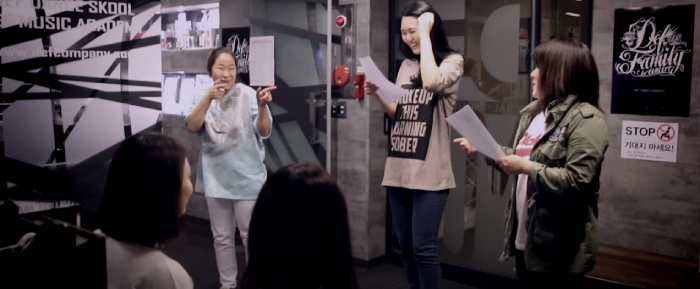by REERA YOO | @reeraboo
editor@charactermedia.com
As K-pop continues to expand overseas and generate millions in revenue, thousands of South Korean children are polishing their dance and vocal skills in hopes of becoming the next K-pop star.
Reuters reported last week that a recent survey showed that 21 percent of Korean pre-teens wanted to be K-pop stars when they grow up, making the profession the top dream job among South Korea’s youth. It’s almost hard to believe that about a decade ago, entertainment was considered an inferior career path that was only suitable for high school dropouts. But now, parents are eyeing K-pop as a viable career choice.
According to the New York Times, there are thousands of cram schools dedicated to cultivating the next generation of K-pop idols. Families spend hundreds of dollars on their children’s dance and vocal lessons in hopes of getting them accepted into one of Korea’s top three talent agencies: SM Entertainment, YG Entertainment and JYP Entertainment.
“Competition is very intense, and there are so many good kids,” said Park Sook-hee, whose 9-year-old daughter, Kim Si-yoon, is currently preparing for her auditions to get into a reputable agency.
Kim wakes up every morning at 7:30 a.m. After school, she undergoes hours of voice and dance training at cram schools before going to bed at midnight. Despite this overwhelming schedule, the young aspiring K-pop star understands that she must make sacrifices to realize her dream.
“It is tough,” Kim told Reuters, as she prepared to practice a dance routine, despite a bad cold. “So I am trying to have fun and when I make efforts, I can perform better.”
Once admitted into a talent agency, potential K-pop stars follow an intense training program, which includes dance, vocals, language, and broadcast etiquette lessons. Many trainees even drop out of school to keep up with the rigorous schedule. However, training at an agency does not guarantee a debut. With so many young and talented performers vying for a spot in the next idol group, K-pop labels have the power to cut or replace whoever they think is not suitable to debut. As a result, trainees either quit or wait years for the chance to perform on stage. JYP artist G.Soul, for example, recently made his debut last month after 15 years of training in the U.S.
Still, the potential perks from K-pop stardom are enticing, especially the paycheck. South Korea’s National Tax Service recently reported that the average annual income for singers swelled to 46.74 million won (USD $43,000) in 2013. That’s more than a 72 percent increase since 2010. In addition, the Bank of Korea revealed that overseas sales garnered from Korean dramas and music nearly doubled in just five years.
With Hallyu branching out into international markets, K-pop stars now have even more opportunities to travel outside of Asia and meet fans from around the globe, which is another powerful incentive for Korean pre-teens to pursue a career in K-pop.
___







